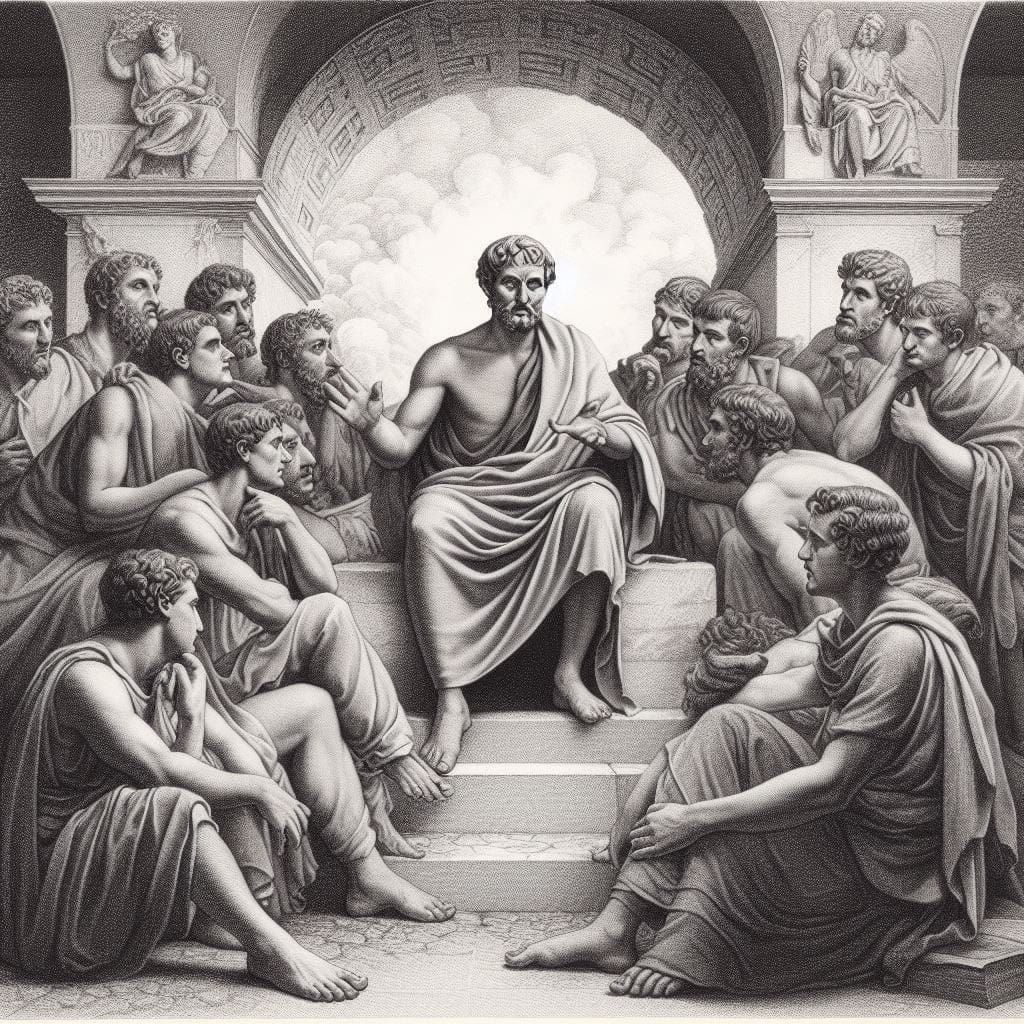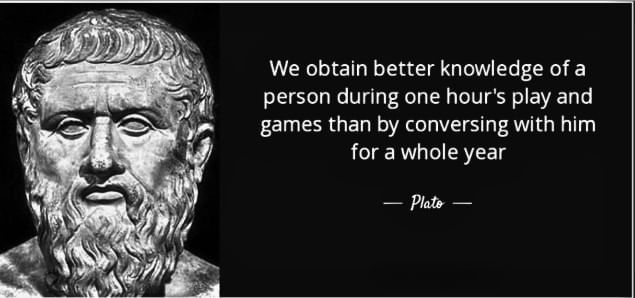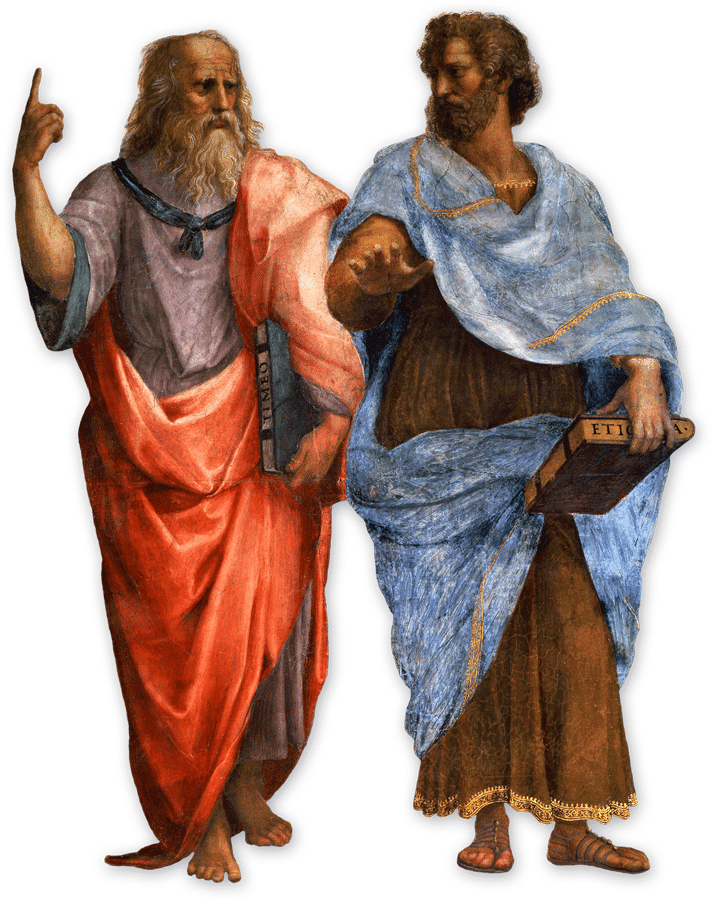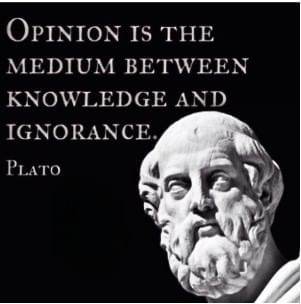Year 13 Exam > Year 13 Notes > Religion, Philosophy & Ethics for A Level > Chapter Notes: Plato’s Understanding of Reality
Plato’s Understanding of Reality Chapter Notes | Religion, Philosophy & Ethics for A Level - Year 13 PDF Download
Introduction

Plato’s philosophical outlook was shaped by his aim to address critical debates initiated by pre-Socratic thinkers, focusing on foundational questions about knowledge and reality.
Problems Plato was addressing
- Plato explored whether certain knowledge is possible in a world where everything is constantly changing.
- He addressed the philosophical problem of the "one and the many," questioning whether reality consists of multiple distinct entities or a single underlying essence.
- These abstract questions form the basis for a theory of knowledge that continues to influence philosophical thought.
Knowledge of changing things
- The pre-Socratic philosopher Heraclitus claimed that everything is in constant flux, with no fixed essence to any entity.
- This perspective created significant challenges for establishing reliable knowledge, which Plato sought to resolve.
Challenges of Knowing a Changing World

Can We Truly Know Something That Changes?
- If something known undergoes complete transformation, the claim to know it becomes questionable.
- For example, when a close friend changes significantly, one might say, “I no longer know them,” illustrating the difficulty of knowing something in flux.
Essence & change cannot co-exist
- If everything changes constantly, the concept of an essence—an unchanging core—cannot exist.
- For instance, an egg may be painted, cracked, or cooked, but its essence as an egg persists beneath these changes.
- Without an essence, true knowledge of anything becomes unattainable.
Breaking down the theory

- Consider the following propositions:
- The interior angles of a triangle always sum to 180 degrees.
- Egg yolks are typically yellow.
- The first is inherently certain due to the logical nature of triangles and angles.
- The second, based on observation, is less certain, as a future egg might have a yolk of a different color.
Only A Priori Knowledge Is Truly
- Plato argued that knowledge derived from reasoning or logic (a priori) offers greater certainty than knowledge gained through experience (empirical).
- He considered a priori knowledge to be the only form of true knowledge.
Plato's thoughts on opinions

- Plato distinguished opinions from true knowledge, asserting that opinions involve believing we know something when we do not.
- He advocated for epistemological humility, recognizing the limits of our knowledge.
- True knowledge must be possible, as opinions are a mix of truth and falsehood; without the possibility of truth, opinions could not exist.
The document Plato’s Understanding of Reality Chapter Notes | Religion, Philosophy & Ethics for A Level - Year 13 is a part of the Year 13 Course Religion, Philosophy & Ethics for A Level.
All you need of Year 13 at this link: Year 13
|
65 docs|15 tests
|
FAQs on Plato’s Understanding of Reality Chapter Notes - Religion, Philosophy & Ethics for A Level - Year 13
| 1. What is Plato's theory of forms and how does it relate to his understanding of reality? |  |
Ans. Plato's theory of forms posits that non-material abstract forms, or ideas, represent the most accurate reality. According to Plato, the physical world is a shadow or a reflection of these ideal forms. For example, while many different types of chairs exist in the physical world, they all share the essence of "chairness" found in the ideal form of a chair. This theory challenges the perception of a changing world by suggesting that true knowledge comes from understanding these eternal forms rather than the fluctuating sensory experiences.
| 2. How does Plato address the challenges of knowing a changing world? |  |
Ans. Plato acknowledges that the physical world is in a constant state of flux, making it difficult to attain true knowledge through sensory experience. He argues that since our senses can deceive us, one must rely on reason and philosophical inquiry to grasp the unchanging truths of the forms. This approach emphasizes the importance of intellectual understanding over empirical observation when seeking knowledge about reality.
| 3. What role does the Allegory of the Cave play in Plato's understanding of reality? |  |
Ans. The Allegory of the Cave illustrates Plato's view of reality and knowledge. In this allegory, prisoners are chained in a cave, only able to see shadows projected on the wall from objects behind them. The shadows represent the deceptive perceptions of the physical world. When a prisoner escapes and sees the outside world, he discovers the forms and true reality, highlighting the journey from ignorance to enlightenment. This allegory emphasizes the need to seek deeper understanding beyond mere appearances.
| 4. How does Plato differentiate between knowledge and belief? |  |
Ans. Plato differentiates knowledge from belief by asserting that knowledge is justified true belief based on the understanding of the forms, which are unchanging and eternal. In contrast, belief pertains to the sensory experiences and opinions about the physical world, which are subject to change and can be misleading. For Plato, knowledge is certain and reliable, whereas belief is often uncertain and based on perception.
| 5. What implications does Plato's perspective on reality have for modern philosophy? |  |
Ans. Plato's perspective on reality has significant implications for modern philosophy, particularly in the areas of metaphysics and epistemology. His distinction between the material and the immaterial has influenced various philosophical schools, encouraging a focus on the quest for ultimate truths beyond empirical observation. Additionally, his ideas about the nature of knowledge and reality continue to be relevant in discussions about the reliability of perception and the pursuit of objective truth in contemporary thought.
Related Searches





















